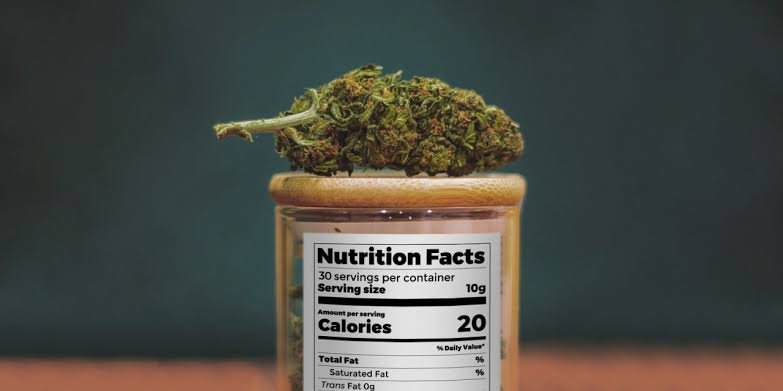Does Weed Have Calories?
Introduction
When it comes to incorporating cannabis into your wellness routine, understanding its caloric impact is essential. While certain methods like smoking or vaping are calorie-free, others, like consuming edibles, come with caloric content.
In this guide, we'll delve into the intricacies of cannabis and calories, explore common dietary applications, debunk the myth of the munchies, and offer tips for finding the right strains and habits to support your lifestyle.
Whether you're seeking to boost appetite, manage weight, or simply understand the concept of cannabis consumption, this article aims to provide clarity and actionable insights for incorporating cannabis into your wellness journey.
Let's dive in!
Weed is Zero-Calorie—Unless You’re Using Edibles
When it comes to cannabis consumption, the caloric impact varies depending on the method of ingestion. If you're smoking, vaping, or using topicals, rest assured that these methods are calorie-free. However, the landscape changes when it comes to consuming cannabis-infused edibles.
While the raw cannabis flower itself contains calories due to its macronutrient composition—including proteins, fats, and carbohydrates—the more common methods of consumption, such as smoking and vaping, bypass caloric intake altogether. This is because these methods involve inhaling the cannabinoids directly into the bloodstream without the need for digestion.
However, when it comes to edibles, the story shifts. Many cannabis-infused products, from baked goods to oils and tinctures, contain ingredients like flour, sugar, and oil, all of which contribute to their caloric content. So, while enjoying a cannabis brownie or a drop of cannabis oil might provide therapeutic benefits, it also adds to your daily caloric intake.
It's essential to be mindful of these differences when incorporating cannabis into your wellness routine. Understanding the caloric implications of different consumption methods empowers you to make informed choices that align with your dietary goals and overall health objectives.
You May Also Read: Smoking Weed With Asthma: Risks, Benefits, Alternatives
Meeting Your Dietary Goals with Cannabis: Common Clinical Applications
Many people turn to cannabis to address dietary concerns, such as boosting appetite and managing nausea. Particularly for patients undergoing cancer treatments or recovering from surgeries, cannabis can play a vital role in supporting nutritional health. By alleviating nausea and stimulating appetite, cannabis can help you maintain a healthy diet even in challenging circumstances.
Demystifying the Munchies
The idea of the "munchies" is well-known in cannabis culture, but not all strains induce this effect. Each strain has a unique cannabinoid profile, and individual responses vary. While some strains may increase appetite, others may not have the same effect. It's essential to explore different strains and consult with experts to find the right fit for your needs.
Strains for Boosting Appetite
Certain strains are renowned for their appetite-inducing properties, making them ideal for individuals seeking to increase calorie intake. Strains like Limoncello, Funyunz, and Marshmallow OG are popular choices, but personal experimentation is key to finding the perfect match.
Strains Sans Munchies
For those looking to avoid increased calorie intake, there are strains that don't typically induce the munchies. Options like Durban Poison, Blue Dream, and CBD Lemon Auto provide therapeutic benefits without the urge to overeat. Again, individual responses may vary, so it's essential to explore different strains.
Lifestyle Support for Dietary Goals
In addition to strain selection, lifestyle factors play a crucial role in achieving dietary goals while using cannabis. Keeping calorie-dense or healthy snacks on hand, optimizing dosing times, and staying hydrated can all contribute to a balanced approach to cannabis consumption. Tailoring your habits to align with your nutritional needs is key to success.
Meet Your Health Goals with Medical Cannabis
Whether you're using cannabis for dietary support or managing the munchies, there's a product and approach suited to your needs. With the guidance of medical professionals and resources like CannabisMD Telemed, individuals can navigate their cannabis journey with confidence. Experimentation, education, and personalized support are the cornerstones of effective cannabis use for dietary and wellness purposes.
Also Read: Does Smoking Weed Make You Age?
Conclusion
Understanding the caloric impact of cannabis is essential for integrating it into your lifestyle effectively. By exploring different consumption methods, strains, and lifestyle habits, individuals can harness the therapeutic benefits of cannabis while supporting their dietary goals. With the right approach and support, cannabis can be a valuable tool in promoting overall wellness and vitality.




